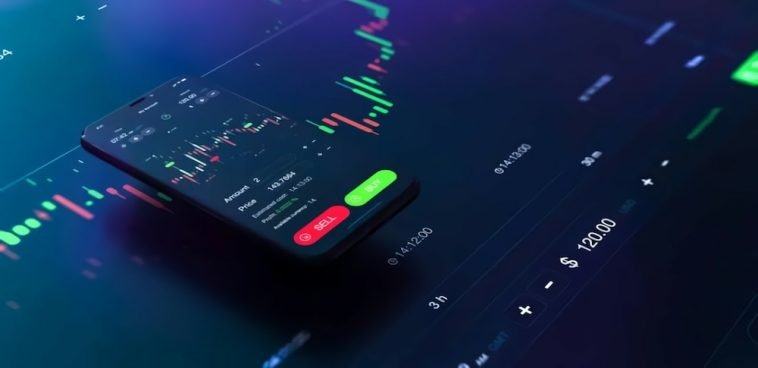Introduction.
If you’ve ever been curious about the world of Forex trading and wondered how brokers earn their share from it, you’re in the right place.
Forex brokers are a crucial part of the global currency exchange market, and understanding how they make money can give you a better insight into how trading works—and why brokers might offer you seemingly “free” services. Spoiler alert: nothing is truly free.
In this post, I’ll walk you through exactly how Forex brokers generate their income, breaking down the most common ways they do it.
So, let’s dive in and explore how Forex brokers keep their businesses running while providing a service to traders like you.
1. Spreads: The Bread and Butter of Forex Brokers
One of the most common ways brokers make money is through something called the spread. This is the difference between the buy price and the sell price of a currency pair. Let’s break this down simply:
Imagine you’re trading the EUR/USD pair. The broker will quote you a price to buy the euro and a slightly lower price to sell it.
The difference between these two prices is called the spread. This spread is essentially the broker’s profit.
For example, if the broker offers a EUR/USD pair with a 2-pip spread, it means they’re earning 2 pips (the smallest price movement in a currency) every time a trade is made.
To put it into context, if you’re trading 100,000 units of EUR/USD, even a small spread of 2 pips can add up over multiple trades.
While spreads might seem tiny, they can add up quickly. For brokers, especially in high-volume trading environments, this is a reliable and consistent way to make money.
2. Commissions: The Direct Charge for Service
Another way Forex brokers make money is by charging a commission. Not all brokers charge commissions, but those that do generally offer tighter spreads (the gap between the buy and sell price).
So, if you’re trading with a broker that charges a commission, it typically means you’re paying a fixed fee every time you open or close a trade.
Let’s say a broker charges a commission of $5 per 100,000 units of currency. This means that for every trade you make, they’re getting that fixed amount—regardless of the direction or size of the trade.
This can be particularly common in brokers who offer ECN (Electronic Communication Network) or STP (Straight-Through Processing) accounts. These brokers might provide raw spreads but charge a commission to cover their costs.
If you’re a frequent trader, these commission fees can add up quickly. However, many traders prefer commission-based models because it offers more transparency—there’s no hidden cost beyond what you’re told upfront.
3. Markups on the Spread (Dealing Desk Brokers)
Some Forex brokers work on a market maker model, where they act as the counterparty to your trade.
These brokers are often referred to as “Dealing Desk” brokers. Instead of connecting you directly to the interbank market (where major banks and financial institutions trade), they create a market themselves and then add a markup to the spread.
So, in this case, let’s say you’re trading EUR/USD and the interbank spread is 1 pip. The broker might widen that spread to 3 pips, adding a 2-pip markup.
This way, they’re pocketing the difference between the price you see and the real market price. While this can be frustrating for traders who want the best possible deal, it’s how many brokers make their profit.
Dealing desk brokers may also offer more “traditional” accounts that allow them to offer fixed spreads, which remain the same regardless of market conditions. Traders who don’t want to deal with fluctuating spreads may prefer this kind of setup.
4. Swap/Overnight Fees: Earning from Holding Positions
Another way brokers can make money is through swap fees, also known as overnight fees. These are the fees charged when you hold a position overnight. The fee is based on the interest rate differential between the two currencies in the pair you’re trading.
If the interest rate for the currency you bought is higher than the one you sold, you could earn a swap (a credit to your account). But if the opposite is true, you’ll have to pay a swap fee.
Brokers earn money from swaps by marking them up slightly before applying them to your account. It’s not a huge part of their revenue but it can add up over time, especially if you hold positions for extended periods.
5. Financing and Leverage Costs
Leverage is a powerful tool in Forex trading. Brokers allow traders to control larger positions with smaller amounts of capital by offering leverage. While leverage is a great way to amplify profits, it also comes with the potential for greater losses.
Brokers make money by charging fees on the leveraged amount you borrow. If you trade with high leverage (say, 100:1 or 500:1), brokers can make money from the interest charged on the borrowed funds.
Some brokers may also have margin requirements, where you need to keep a certain balance in your account. If you don’t meet these requirements, the broker might charge a fee or even close your position.
The interest charges can be daily, weekly, or monthly, depending on the broker. It’s something to watch out for, especially if you’re using leverage for long-term trades.
6. Account Fees: Charging for Maintenance and Services
While this isn’t as common, some brokers charge fees for maintaining your account. These might be monthly, quarterly, or annual fees.
Sometimes, these fees are applied if your account balance falls below a certain threshold or if you’ve been inactive for a period of time.
For example, a broker might charge a $25 quarterly inactivity fee if you haven’t executed any trades within the past six months. While this isn’t a major source of income for brokers, it’s still a way they keep their businesses running.
7. Selling Data and Analytics
Finally, many Forex brokers make money by selling data, research, and analytics to third parties.
The Forex market is huge, and many institutions and firms are willing to pay for detailed insights into trading behavior and market trends.
If a broker has a large customer base, they may be able to sell aggregated data (without revealing individual trader identities) to these institutions. This gives brokers another stream of revenue to keep their business profitable.
FAQs
1. Is it possible to trade Forex for free?
Technically, no. While many brokers offer commission-free trading, they usually make money through wider spreads or other fees. It’s important to know how your broker is charging you before you start trading.
2. How much money can Forex brokers make?
It depends on the broker’s size, business model, and the volume of trades they facilitate. Larger brokers with millions of traders can make substantial amounts of money, but smaller brokers may generate more modest earnings.
Some of the biggest Forex brokers in the world, like IG Group and OANDA, report annual revenues in the hundreds of millions.
3. How do brokers make money if I lose money?
Even if you lose money, brokers can still earn from the spreads, commissions, and overnight fees on each trade. However, it’s important to note that brokers are not directly betting against you. Their business model works best when traders are profitable and continue to trade.
4. Can a broker lose money?
Yes, brokers can lose money, especially if they take on too much risk. If they’re market makers and take the opposite side of your trade, they might lose if the market moves in the direction you’re betting on. This is why many brokers hedge their positions or offset trades in the interbank market to reduce risk.
Conclusion.
So, now you know how Forex brokers make money—whether it’s from spreads, commissions, overnight fees, or leverage costs.
While brokers play a key role in the Forex market by connecting traders with the market, they’re also running a business that needs to make a profit.
But with so many different ways for brokers to earn revenue, it’s crucial for you as a trader to understand how these costs affect your bottom line.
Now, think about this: knowing how brokers make money, would you change the way you trade to minimize your costs, or does it not affect your strategy?





GIPHY App Key not set. Please check settings